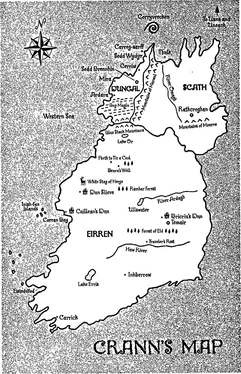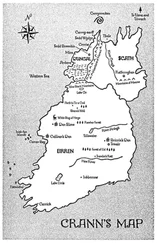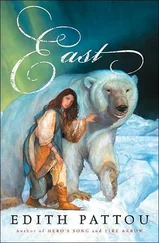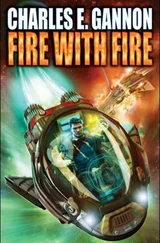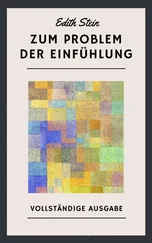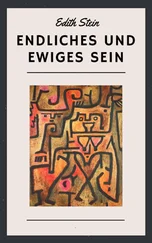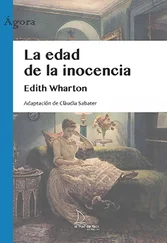Edith Pattou - Fire Arrow
Здесь есть возможность читать онлайн «Edith Pattou - Fire Arrow» весь текст электронной книги совершенно бесплатно (целиком полную версию без сокращений). В некоторых случаях можно слушать аудио, скачать через торрент в формате fb2 и присутствует краткое содержание. Издательство: Houghton Mifflin Harcourt, Жанр: Старинная литература, на английском языке. Описание произведения, (предисловие) а так же отзывы посетителей доступны на портале библиотеки ЛибКат.
- Название:Fire Arrow
- Автор:
- Издательство:Houghton Mifflin Harcourt
- Жанр:
- Год:неизвестен
- ISBN:нет данных
- Рейтинг книги:5 / 5. Голосов: 1
-
Избранное:Добавить в избранное
- Отзывы:
-
Ваша оценка:
- 100
- 1
- 2
- 3
- 4
- 5
Fire Arrow: краткое содержание, описание и аннотация
Предлагаем к чтению аннотацию, описание, краткое содержание или предисловие (зависит от того, что написал сам автор книги «Fire Arrow»). Если вы не нашли необходимую информацию о книге — напишите в комментариях, мы постараемся отыскать её.
Fire Arrow — читать онлайн бесплатно полную книгу (весь текст) целиком
Ниже представлен текст книги, разбитый по страницам. Система сохранения места последней прочитанной страницы, позволяет с удобством читать онлайн бесплатно книгу «Fire Arrow», без необходимости каждый раз заново искать на чём Вы остановились. Поставьте закладку, и сможете в любой момент перейти на страницу, на которой закончили чтение.
Интервал:
Закладка:
After almost a week of going out on the Storm Petrel, Jacan invited Brie to join them in their evening meal. Hyslin greeted her kindly, though Brie saw the grief still in her face. That night Brie learned Hyslin was betrothed to a fisherman named Gwil, and would be wed the following spring. To celebrate the good catches of the past few days, Hyslin donated a bottle of homemade lemongrass-and-rose wine from the cache she had already begun to stockpile for her wedding feast. They ate a delicious meal of fresh fish, roasted red potatoes, and tender white corn. Hyslin politely filled a plate with fish and a bowl of sweet cream for Fara, who gave it a careful inspection then set to with regal pleasure.
When Brie returned to Farmer Garmon's barn that night, she found Hanna smoking her pipe and reading one of Lotte's books by oil lamp. The older woman gazed on Brie then smiled.
"What?" Brie asked, curious.
"You have come back," said Hanna.
"Of course," responded the girl with a puzzled look.
"No. From Bog Maglu. I was not sure you would." Hanna blew a smoke ring, then added, "One day perhaps you will tell me of the bog."
Brie curled up in the hay, drowsy, content, Fara nestled at her side.
"Harvest day is the next full moon," Hanna's voice came. Less than a fortnight away, Brie thought. Hard to imagine that the summer was almost over. Something nagged at her, something she ought to remember, but she was too tired and was soon asleep.
***
The fortnight passed quickly. There were good days of fishing and bad. On the bad days Brie learned how to weave and craff the nets.
She also visited Lom and helped him with his boat. She liked Lom, as Hanna had predicted. In him she found a willing audience for her newfound love of the sea. He listened to her indulgently, as one who has been through the same early throes of passion.
From Lom, Brie learned of designing and constructing a boat. Proudly he showed her a model he had whittled, the size of his open hand; he would talk on and on, childlike in his enthusiasm.
The boat was a living creature to Lom, a bairn to which he was slowly and surely giving birth. Indeed it had the anatomy of a person, Brie thought, with a backbone and ribs; the rigging was its muscles and the planking its skin. Lom had yet to name the boat, though there was no question as to its sex. All boats, he said, were female. Incongruously, though, there were few fisherwomen in Dungal, a tradition that a handful of the younger women were trying to change.
Then it was harvest day. Brie had been hearing much about Cynheafu, the day the harvesting was finished. Even the most industrious fishermen left their boats in the harbor to participate in the festivities. Hyslin had been busy baking the borrog, large, round, moon-shaped cakes, in honor of the moon's influence over crops and harvests, and on the days when the fishing was poor and they came back early, Brie would help Hyslin with the baking. They grew to be friends.
The night before Cynheafu, Hyslin gave Brie a bright yellow dress and told her she must wear it the next day. "No one is allowed to wear anything drab or dark on harvest day," she said, eyeing Brie's gray tunic and leggings meaningfully.
"But I will be helping with Farmer Garmon's harvest," objected Brie. "I cannot be wearing a dress."
"We all help with the harvest, and all the women wear dresses," responded Hyslin. "You will stick out like a pilchard in a basket of cod if you do not." So Brie took the dress, thinking to hide it under a bale of hay back at Farmer Garmon's barn, but Hanna caught sight of it and nodded her approval. She showed Brie the brightly covered vest and long skirt she herself planned to wear. "Lotte loaned them to me. 'Twould be an insult not to wear them," she said.
As she took her place alongside the other reapers in the field the next morning, Brie felt so irritable in her yellow dress that she didn't notice the admiring glances cast her way. The last time she had worn a dress was in Tir a Ceol, and that had been a simple white shift that fell straight to the floor. This dress was cinched at the waist, with flaring skirts made even wider by the red flannel petticoat Hyslin had insisted she wear. It was the custom, she assured Brie.
Brie quickly forgot about the dress as she worked. Harvesting went quickly with so many hands gathered. Farmer Garmon was a particularly popular farmer, known to be generous, and so had no shortage of able-bodied workers. Even the elders and children of Ardara participated, following behind and tying the harvested grain into sheaves. Everyone was indeed dressed in their most colorful clothing, and it was a splendid sight—bright bursts of color weaving in and out among the rows of barley and, later, in the fields of golden wheat.
The day went quickly and it wasn't long before the shout went up. "We've got the grainne!"
"The grainne, the grainne!" Other voices echoed and a knot of women rushed forward and busied themselves; Brie could not see with what. Finally they stepped aside, to cries of "the grainne maiden, the grainne maiden," revealing the last sheaf of wheat dressed in a white flowing gown, belted with a criosanna and colored ribbons.
The effigy was attached to a pole and the tallest and strongest of the reapers hoisted the grainne maiden high. Meanwhile, a gaily decorated wagon, pulled by horses with flowers and ribbons plaited through their manes, was filled to the top with sheaves of wheat. Then a procession formed, led by the men carrying the grainne maiden, followed by the decorated wagon, which was in turn followed by the brightly dressed harvesters.
The procession made its way into town and was met by many such processions. Then all the wagons and grainne maidens converged on a large grassy bluff overlooking the sea. The grainne maidens were set up along the bluff looking like a promenade of finely dressed, highborn ladies, their ribbons blowing in the sea wind. Tables were swiftly set up and almost as swiftly covered with food.
After all had gorged on the harvest bounty, the dancing began. It started with the drol, a traditional Dungalan dance in which a human chain is formed by linking hands and the dancers weave in and out in complicated patterns, never breaking the chain. It was led by Sago, the Sea Dyak sorcerer, his paper-thin legs following the ancient patterns easily and surely. Gradually, though, as more mead was consumed and twilight fell, the group of dancers split into pairs.
Contentedly munching on borrog, Brie had watched the drol, thrilled by the graceful, colorful patterns made by the dancers. Then Lom stood before her, flushed and smiling.
"Will you dance?" he asked.
Brie looked out at the whirling skirts and capering feet and felt a longing to join them. But she shook her head. She saw Lom soon after dancing with a tall, slender girl with coppery red hair.
Brie suddenly remembered herself as a child watching the Midsummer bonfires, wishing to dance. She strained to spot Lom in the diminishing light. Occasionally she caught a glimpse of the indigo shirt he wore. He was still with the red-haired girl. Brie found herself trying to remember if she had ever seen Collun dance. And then for some reason she thought of Aelwyn's words of Collun's comeliness. She flushed, irritated with Aelwyn, and with herself.
Jacan and Ferg came to sit with her. Jacan talked of the next day's fishing, but Ferg was distracted by a saucy girl named Beith, who took great delight in teasing him.
The dancers began to disperse; Jacan drifted off to talk with some fellow fishermen, and Ferg went running after Beith, who had stolen one of his shoes. Brie could no longer see Lom. A knot of fiddlers began to play a lilting ballad about Fionna, the queen.
Brie sat peacefully, gazing up at the three-quarter moon.
Читать дальшеИнтервал:
Закладка:
Похожие книги на «Fire Arrow»
Представляем Вашему вниманию похожие книги на «Fire Arrow» списком для выбора. Мы отобрали схожую по названию и смыслу литературу в надежде предоставить читателям больше вариантов отыскать новые, интересные, ещё непрочитанные произведения.
Обсуждение, отзывы о книге «Fire Arrow» и просто собственные мнения читателей. Оставьте ваши комментарии, напишите, что Вы думаете о произведении, его смысле или главных героях. Укажите что конкретно понравилось, а что нет, и почему Вы так считаете.
